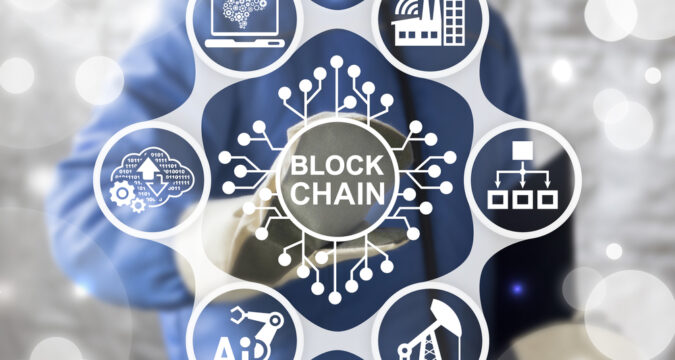
Introduction
Blockchain uses are not limited to financial markets alone. This technology has the potential that can enhance the performance of various sectors and professions. This article is all about blockchain technology and its practical applications.
What is Blockchain?
Blockchain is a combination of two words namely block and chain. Blocks are digital ledgers or journal entries for financial transactions. Each block can contain a specified amount of information as per its capacity or block size. Bitcoin blocks can hold 1MB worth of data.
Blocks are verified in a decentralized manner by miners or validators. They are freelance computational power providers or hash rate generators who are not centralized. Approved or verified blocks are added to the main network in the form of a chain thus named blockchain.
Blockchains conduct transactions in the form of encrypted virtual assets that are called cryptocurrencies.
Top Use Cases of Blockchain
There has been a debate about the need and utility of blockchain applications. Here are some important use cases for blockchain networks that are given as under:
Smart Contracts
Smart contracts are programs that can carry out specified functions in an automated manner. Since blockchains strive to be decentralized therefore many blockchains such as Ethereum, Cardano, Polkadot, Binance Smart Chain, and EOS allow developers to create and deploy smart contracts.
Smart contracts make a financial processing network and other applications transparent and reliable. It is because smart contracts only carry out functions once the predefined conditions are met.
Remittance
Remittance has become one of the fastest-growing digital services in the world. At present both commercial and retail users struggle to get the best remittance options and cross-border payment solutions.
Blockchains such as Bitcoin, Ethereum, and stablecoins such as USDT allow their users to perform seamless, faster, and cheaper international transactions. There are also second-layer solutions such as Lightning Network and Optimism that are making crypto transactions cheaper than ever before.
Internet of Things (IoT)
The Internet of Things IoT is a technology that is used to collect information and process it for a computer program. Blockchain projects such as Western Stack, Ubirch, NetObjex, and ArcTouch allow users to perform IoT functions. Their data contribution is tethered to their native tokens increasing their utility and market value for the long term.
Healthcare
Medicine companies are using blockchain to combat counterfeit medicine production. Some of the most popular blockchains in the healthcare sector are Blockpharma, Dentacoin, Encrypgen, and Blockpill among others.
NFTs are non-fungible tokens meaning that they are unique and represent digital ownership. Many blockchains have added support for NFTs that are used for Web3 gaming, tokenization, and property sales among other use cases.
Central Banks
Government and Central Banks are one of the biggest consumers of blockchain technology. Most countries in the world are currently working on a digitized version of their legal tender.
A blockchain-based legal tender issued by Central Bank is called CBDC or Central Bank Digital Currency and major economic powers like China have already publicized their Digital Yuan project.
Media Outlets
Journalists have become more financially independent and unbiased using blockchain technology. With the introduction of blockchain, journalists can garner financial support for their content from any part of the world. At the same time, they can also share information and dodge unfair government sanctions.
Supply Chain
Blockchain can revolutionize the supply chain and logistics industry by enabling the tracking of products in real time. At the same time, they also reduce cost and tracking time.
Personal Identity Security
Blockchains are usually open-sourced projects which means that anyone can access the on-chain information on the platform. However, blockchains do not require the users on the network to provide their personal or government-issued information for conducting cryptocurrency transactions.
Therefore, blockchains have made financial transactions transparent while maintaining the privacy of the investors.
Cloud Computing/ Domain
Cloud computing is online data storage and hosting. Blockchains are distributed ledgers which means that they are not dependent on a single server but divided among nodes.
There are also blockchain networks that offer cloud computing services such as Infura, Alchemy, Amazon-managed blockchain, etc.
Conclusion
Blockchains are often compared with the internet. With the passage of time, developers and computer scientists are coming up with new versions and utilities of blockchain technology. In the future, the DeFi sector is expected to transform the financial sectors and have a significant impact on other sectors mentioned above as well.




